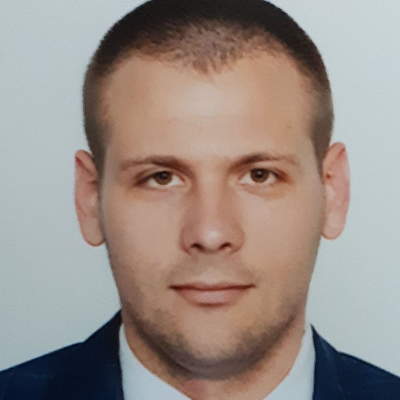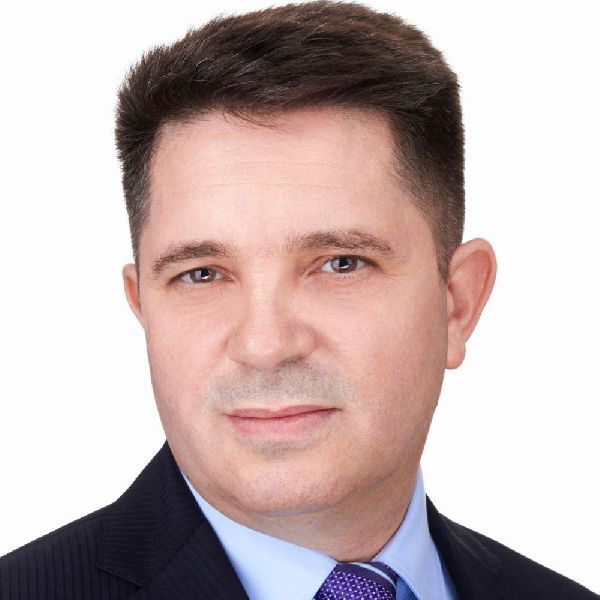
|
19.04.2023 | Teodor Burnar
|




|
Mr. Marko Marović on Competition Law developments in Serbia: „It is up to us lawyers to prevent «fishing expeditions» and all other actions that are not in accordance with the law”
WOLEP: Please walk us through your career so far.
Marko Marović: My name is Marko Marović, and I am an Attorney-at-Law practicing in Belgrade, Serbia. In addition to my practice, I collaborate with a law firm in Novi Sad, which is managed by my father. I have completed my Bachelor’s degree in Serbia, at the University of Novi Sad, and later graduated from the LL.M. program at Leiden University - Law School in the Netherlands. My area of specialization is primarily corporate and competition law, which I focus on in my practice.
WOLEP: What led to your interest in competition law?
Marko Marović: During the last year of my bachelor's studies, my father's involvement in a particular case piqued my curiosity, and I became eager to learn more about it. However, the topic of competition law was not included in the Bachelor's program at the time. This led me to explore LL.M. programs abroad, particularly in the EU, which eventually sparked my interest in competition law. Following the completion of my Bachelor's degree, I had the opportunity to work as a trainee at the CMS office in Belgrade, where I was mentored by experienced competition lawyers. This hands-on experience further fuelled my passion for competition law.
WOLEP: Thank you for providing this background. I am sure that your father has been an inspirational figure in your career so far.
Marko Marović: Yes, he was! And I can proudly say he remains one.
WOLEP: One particular area of interest to you are restrictive agreements. For colleagues that are not of specialty, or that may have heard about restrictive agreements but don't have an in-depth knowledge of the topic, can you explain briefly what they are and how they impact competition in a market such as Serbia or the EU?
Marko Marović: In discussing restrictive agreements under Competition Law, it is important to note that such agreements typically involve a contractual arrangement between two or more undertakings. In this context, the term “undertaking” encompasses a broad range of entities, including but not limited to companies, legal entities, associations, and even countries operating within a specific market, as well as individuals.
Why Competition Law? It is definitely the most creative field of law!
In the context of Competition Law, restrictive agreements refer to agreements between undertakings or competitors that are intended to significantly restrict, distort, or prevent competition in specific markets. The Law on the Protection of Competition, which governs the market in the Republic of Serbia, is of particular interest as it applies to actions taken abroad that may impact the Serbian market. Restrictive agreements may take various forms, including contracts, certain clauses, contract provisions, and tacit, or express agreements. The Law on the Protection of Competition also covers the concept of “concerted practices”, which can be challenging to demonstrate in practice.
In the context of Serbian positive law, there are some examples of restrictive agreements and means of tracking them, though it is worth noting that this list is not exhaustive and may be expanded over time. As a result, restrictive agreements should be regarded as a broad concept, and competition authorities typically exhibit a high degree of flexibility in their approach.
It is important to distinguish between horizontal and vertical agreements, depending on the level of production or trade chain involved. Horizontal agreements refer to agreements between direct competitors in a specific market, whereas vertical agreements involve undertakings at different levels of a distribution or production chain. These are just some of the key considerations in this area.
WOLEP: I can see why the domain appeals to you. I remember some important cases regarding these agreements that were uncovered in the past in Europe as well as in the United States. Does a notable case involving restrictive agreements in Serbia come to your mind?
Marko Marović: In my experience, there have been several interesting cases in the Serbian retail market, particularly in the area of sports equipment and sportswear. Due to the transparency of these markets, it is relatively easy to investigate retail prices and identify potential anti-competitive behaviour. The Commission for Protection of Competition (CPC) in Serbia often suspects the existence of explicit or tacit agreements among undertakings, which is not always the case.
One such case involved a vertical agreement between a wholesaler and retailers, known as “resale price maintenance”. This agreement prohibited retailers from setting prices lower than those determined by the wholesaler, which ultimately impacted competition in other markets. This case was quite intriguing. Currently, there are ongoing investigations and the CPC has recently adopted decisions on several other cases.
There was a case a few years ago of a restrictive agreement in Serbia that involved sports equipment and sportswear. It was a vertical agreement between the wholesaler and the retailers, a so-called “resale price maintenance”.
As a legal professional practicing in Serbia, I have been closely following the decisions of the CPC on cases related to Competition Law. One recent case involved the fixing of resale prices of Tesla-branded consumer electronics by certain companies, through an agreement between the wholesaler and retailers. The CPC's decision on this case was particularly noteworthy, and I would recommend members of WOLEP from Serbia to read it. Although the decision is only summarized in English on the website of the Serbian authority for the protection of competition, it provides valuable insights and is relevant to our current discussions on restrictive agreements in the market.
WOLEP: I presume in Serbia - as was the case with the EU - this legal framework that addresses the domain of restrictive agreements has evolved during the past decade. What areas still require improvement, in your opinion?
Marko Marović: CPC relies heavily on the EU legislation due to Serbia being a candidate member. Under Article 73 of the Stabilisation and Association Agreement with the EU, the CPC is obliged to interpret rules in light of and with the applied criteria of the EU.
The European Commission has reported that the CPC has a very similar practice to the competition authorities in the EU, and has expressed appreciation for their performance. However, I do believe that both the legislation and procedural aspects of Competition Law could be updated in Serbia. One ongoing debate in the EU concerns the regulation of platforms' activities in terms of competition law.
In Serbia, the CPC recently announced the sectorial analysis report of the state of competition in the market of digital platforms for mediating the sale and delivery of mainly restaurant food and other products (2020-2021), which provides interesting data that could be subject to further analysis.
On the procedural side, some rights of the parties are vague and could be more transparent. For example, parties should have the right to access the files that led the CPC to believe there are plausible indications of an infringement. However, in practice, these analyses are not available to the parties, even though they were a crucial argument for the CPC to start an investigation.
Furthermore, it should be noted that companies and undertakings in Serbia may not possess an adequate level of familiarity with competition legislation, nor an appreciation for the practical significance of compliance with competition rules, which could lead to unfavourable outcomes for them.
Companies and undertakings in Serbia are not very well accustomed to the legislation and the practical importance of compliance with competition rules, which can land them in hot waters
WOLEP: We’ve mentioned retail as, let’s say, an industry where it is common to find such restrictive agreements. Are there any other industries or sectors within the Serbian economy that have a history of engaging in restrictive agreements?
Marko Marović: Although there is no specific industry that is prone to such practices, I would like to draw attention to the issue of bid rigging, which has been observed in practice in Serbia. There have been several cases in which companies engaged in bid rigging, which involves activities to set the bidding process.
WOLEP: Can you mention some of the strategies that these companies employ in order to circumvent competition law? I presume they are very creative.
Marko Marović: Companies often resort to very creative measures. This presents a challenge for authorities like the CPC to gather evidence and build a strong case against them. However, the definition of restrictive agreements and infringement is quite broad, which allows authorities to employ creative strategies and build cases even when the evidence may not be immediately apparent. For instance, it can still be proven with a thorough analysis of prices and other elements. On the other hand, it is important for us lawyers to prevent «fishing expeditions» and any other actions that are not in accordance with the law. Our role is to prevent such scenarios and help undertakings be safe.
To be continued
Are you a legal eagle with a passion for collaboration? Join forces with other legal professionals and elevate your practice to the next level. Don't wait, sign up now to WOLEP and connect with like-minded lawyers today. Register your account here.
#Vorstellungsgespräche #WOLEP Talk #Marko Marovic #law in the Balkans #competition law #restrictive agreements




